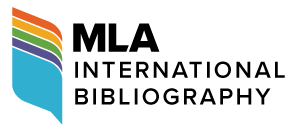Code of Ethics
In order to guarantee both a harmonious relationship between the parties involved and the quality of its published content, Connotas urges authors, per-reviewers, members of the Editorial Board as well as of the Scientific committee, to maintain the highest standards of intellectual and scientific integrity.
Duties of the Director:
- Consult the Editorial Board to solve conflicts related to the journal's editorial policy.
- Summon the Editorial Board to regular meetings with a minimum frequency of once a month.
- Grant official proof or evidence to the reviewers for each review issued.
- Check the validity of the journal's legal records.
- Guarantee that the publication process complies with copyright regulations.
- Manage material and human resources with the corresponding institutions to ensure the proper functioning of the journal.
Duties of the Editorial Board:
- Select and assign the reviewers of the papers received by the journal, based on their experience as researchers on the related topic.
- Communicate the results of the review process to the author.
- Keep the reviewers’ identity confidential.
- Reject those paper proposals that are published in other printed or digital journals, as well as those that constitute total or partial plagiarism.
- Carry out a basic assessment of the papers received before they are sent for external review and notify the authors of this decision.
- Solve conflicts that may arise in the review and editing processes, based on the recommendations of the Committee on Publications Ethics (COPE).
- Propose initiatives that lead to an enhancement of the journal in its different aspects: quality, visibility, presentation.
- Assist in the editing process.
Duties of the reviewers
- Declare and explain if there is any conflict of interest in reviewing a paper.
- Treat under terms of confidentiality the paper whose review you have been assigned.
- Keep the secrecy of your participation as a reviewer even after the work has been published.
- Do not transfer your reviewer role to other researchers.
- Issue your verdict according to the merits and/or weaknesses of the assigned paper, relying on the Online Review Form that is available to you.
- Send the results of your review within the period established by the journal.
- Do not quote or copy the text that has been entrusted to you.
Duties of the authors:
- Submit unpublished paper proposals that are not currently in other editorial processes.
- Follow the Submission Guidelines stipulated by
- Sign and provide the NON-EXCLUSIVE USE LICENSE document in physical format once your paper has been accepted for publication.
- Correct, expand or improve your papers, once they have been accepted for publication, taking into account the reviewers’ comments and suggestions.
- Send corrections of your papers within the period requested by the journal.
The following behaviors are considered unacceptable:
- Plagiarism: partial or total reproduction of someone else’s work, published or unpublished, without proper reference. Any paper that incurs in plagiarism will be rejected.
- Simultaneous application of the same article for different publications. The identification of this will result in the disqualification of the article as a candidate for publication or in the automatic cancellation of the review process, as the case may be.
- Corruption or manipulation of the arbitration/review processes. If a conflict of interest is detected in a review, this result will be annulled, and the reviewer involved will be dismissed. After which, the paper will be assigned to another reviewer.
- Indication or suggestion by the reviewer in the Online Review Form that their own publications must be taken into account to enrich or improve any aspect of the reviewed paper.




